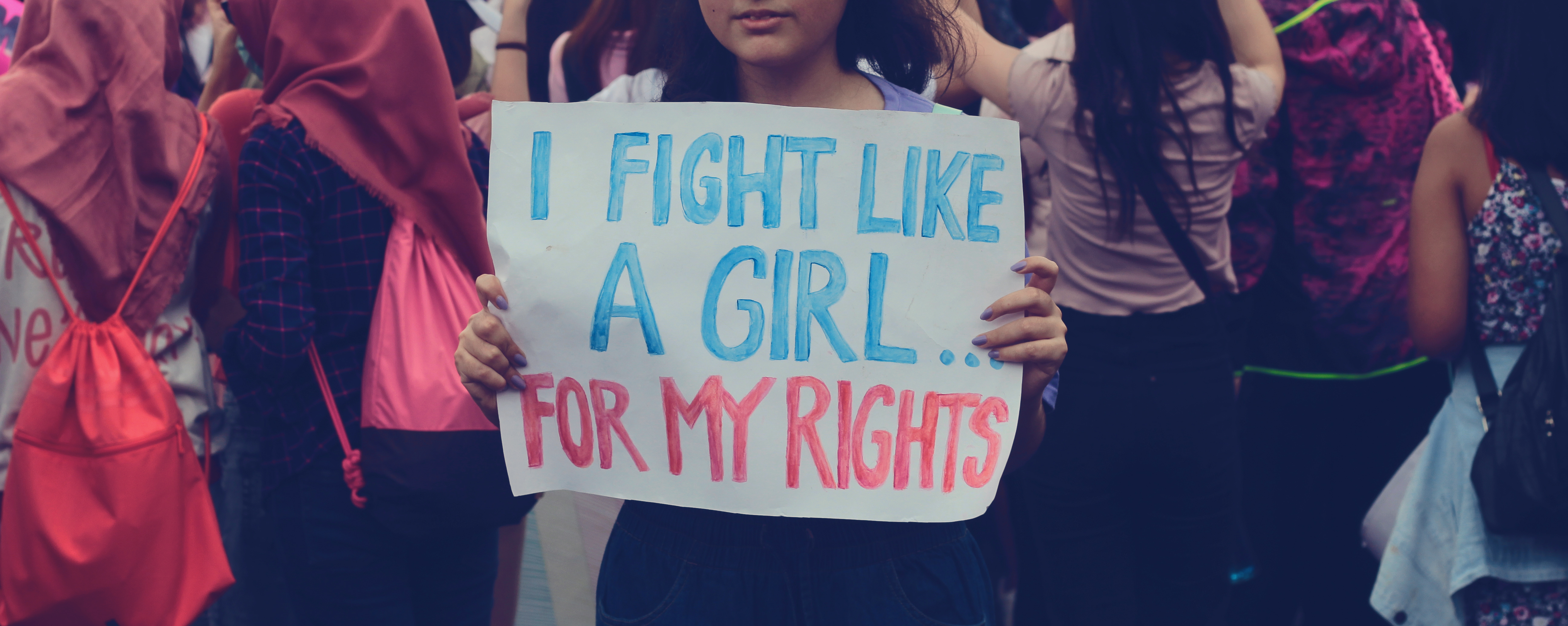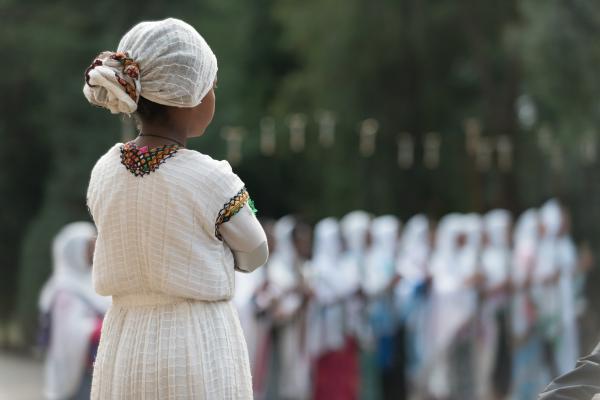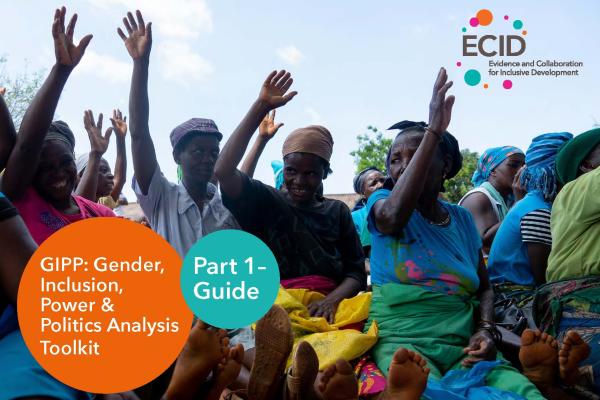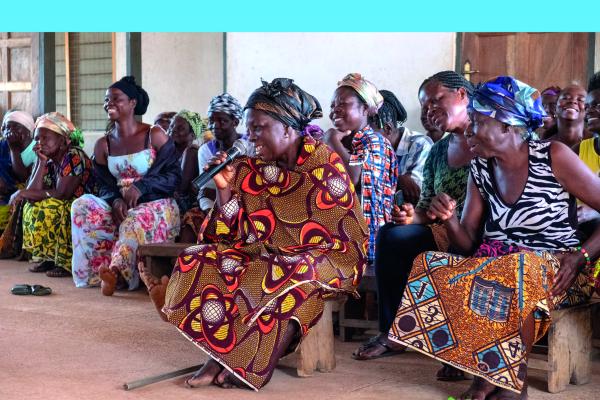Governance and Inclusive Societies
Our societies are marked by stark inequality and the exclusion of different people, including women and girls, people with disabilities, LGBTQI+ people, and ethnic and religious minorities.
At SDDirect, we work with communities, civil society, governments, businesses and others to foster a culture of active citizenship and greater accountability of all those who hold power.

What is Governance and Inclusive Societies?
We work to build inclusive societies where every citizen and community is valued and empowered to make their own choices about their development, act on these choices, and hold duty-bearers to account.
By applying a gender equality and social inclusion (GESI) lens, poor and socially excluded people can be better supported to access and claim knowledge, resources, rights and services. This allows them to participate in public life and build fairer, more inclusive communities and become active agents of change.
Our work in this area
Our work is technically focused and grounded in practice which is objective and unbiased. Key products and services include:
-
Gender equality and social inclusion (GESI) analysis, strategy development, training and implementation support
-
GESI-aware political economy analysis (PEA), including SDDirect’s Gender, Inclusion, Power & Politics (GIPP) analysis
-
Design and advisory support to active citizenship, community voice and participation, and social accountability initiatives
-
Fast response ‘helpdesk’ facilities to provide the latest available evidence and analysis on key issues and questions
-
Disability inclusion mainstreaming, research, review, and analysis
-
Facilitation and advisory support to more inclusive and equitable development partnership-building
-
Development of ethical, ‘do no harm’ and safeguarding frameworks
-
Stakeholder mapping, engagement, and facilitation of multi-stakeholder dialogue
-
Monitoring, evaluation and learning (MEL) for governance-related programmes
-
Inclusive services, including promoting access to education and health services, including sexual and reproductive health and rights.
We provide technical leadership on GESI in governance programmes, including developing GESI strategies and promoting GESI mainstreaming throughout programmes. We take an innovative ‘looking inwards and outwards’ approach, working on GESI inclusion within our partnerships and consortiums as well as our programme work.
We deliver GIS programming in a diverse range of country contexts, including development and emergency settings. We take an intersectional approach to understanding and challenging the structural barriers that people face to social inclusion, including discrimination based on gender, age, disability, sexual orientation, socio-economic status, and other factors.
If you would like to hear more about our work on Governance and Inclusive Societies (GIS), please reach out to Emma Haegeman, Head of Governance and Inclusive Societies Portfolio, EmmaHaegeman@sddirect.org.uk
Nigeria Voices for Change (V4C)
SDDirect played a leading role in the implementation of Voices for Change (V4C), the UK Department for International Development (DFID)’s £28m flagship programme (2012 - 2017) on strengthening the enabling environment for women and girls’ empowerment in Nigeria. SDDirect was responsible for technical leadership across the programme and for bringing together a team of Nigerian and international experts with technical expertise in the fields of gender equality, social norms, media and communications, and research and evidence.
UNHCR's Engagement with Displaced Youth
This review sought to explore the United Nations High Comissioner for Refugees' (UNHCR) engagement with displaced youth, refugees and internally displaced persons (IPDs), by analysing the UN agency’s commitments to youth through its policies, guidelines, strategies, institutional infrastructure, approaches to identifying and responding to the needs of displaced youth, current funding, programmes and monitoring and evaluation processes.
l’autonomisation des adolescentes et jeunes femmes à Kinshasa: synthèse d’apprentissage du programme La Pépinière
A learning synthesis of the La Pépinière programme (French version).
La Pépinière: Mini-pilot progress report
The mini-pilots focused on adolescent girls and young women (AGYW) economic empowerment in the areas of mobile money/savings; social capital and inspirational role models; and social media interaction. The results of all three mini-pilots exceeded expectations in terms of improving financial independence, whilst two demonstrated improvements in AGYW decision-making on the use of their savings.
The Economic Empowerment Index for the Young and Adolescents (EEIYA): concepts, definitions, use, and application to Kinshasa Context
In 2016 we designed an Economic Empowerment Index for adolescent girls and young women. This index was rolled out through a large-scale quantitative survey, allowing us to test various hypotheses related to adolescent girls' and young women's economic empowerment. This report outlines the concepts, definitions, use and application of the Economic Empowerment Index for the Young Women and Adolescents in the Kinshasa context.
La fin justifie-t-elle les moyens ? Comprendre les relations intimes des adolescentes à Kinshasa
Qualitative study on norms and practices around romantic relationships, sexual intercourse and marriage of adolescent girls and young women in Kinshasa (French version).
The realities of adolescent girls and young women in Kinshasa: Research about girls, by girls
Final report on 'The realities of adolescent girls and young women in Kinshasa: research about girls, by girls'. See below links to the full report, executive summary, and French version.
Les transitions et les trajectoires des adolescentes et des jeunes femmes à l’« economic empowerment »
Report on adolescent girls and young women’s transitions and trajectories to economic empowerment (French version below).
Pagination
- Previous page
- Page 3
- Next page
Our work in this area
 Civil Society Support Programme Phase 2 (2018-2022) is a capacity development programme to support Ethiopia’s civil society and its contribution to national development, poverty reduction and advancement of good governance. It is managed by the British Council in partnership with UK Partnering for…
Civil Society Support Programme Phase 2 (2018-2022) is a capacity development programme to support Ethiopia’s civil society and its contribution to national development, poverty reduction and advancement of good governance. It is managed by the British Council in partnership with UK Partnering for… The ECID programme (2018-2021) was funded through UK Aid Connect (UKAC)’s Strengthen Civil Society Effectiveness pillar. UKAC was set up by the Department for International Development (DFID) to deliver lasting change to poor people’s lives by supporting consortia of diverse organisations to come…
The ECID programme (2018-2021) was funded through UK Aid Connect (UKAC)’s Strengthen Civil Society Effectiveness pillar. UKAC was set up by the Department for International Development (DFID) to deliver lasting change to poor people’s lives by supporting consortia of diverse organisations to come… The STAR-Ghana programme (2015-2020) was a voice and empowerment programme that supported civil society to achieve increased accountability and responsiveness of the state.
The STAR-Ghana programme (2015-2020) was a voice and empowerment programme that supported civil society to achieve increased accountability and responsiveness of the state.- SDDirect was one of two partners in a consortium delivering the £12m Deparment for International Development (DFID) funded Implementation and Analysis in Action of Accountability Programme (IAAAP) in Somalia.
- V4C’s mission was to inspire a generation of new voices to ‘speak up and speak out’, empowering adolescent girls and young women to achieve their real and full potential.
- SDDirect was the lead contractor on the Department for International Development (DFID) Democratic Republic of Congo (DRC)'s Programme for Adolescent Girls and Young Women (La Pépinière*). SDDirect led a consortium with the Le Centre Régional de Recherche et de Documentation sur les Femmes, le…
- In 2021 Plan International UK and SDDirect, in collaboration with Plan International Inc., started a collaborative initiative to enhance our learning, knowledge and practical innovation on partnerships.